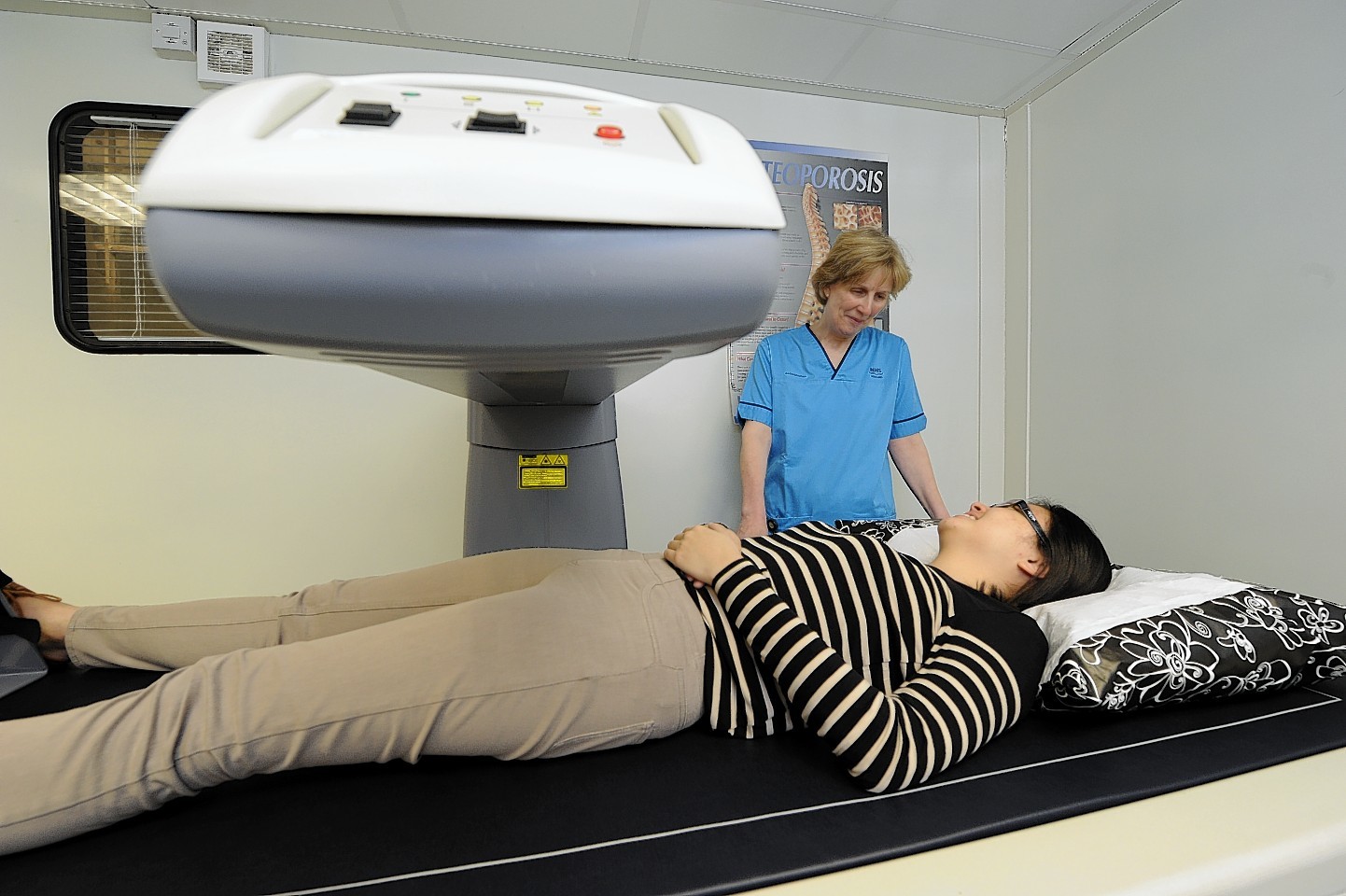Scotland’s first mobile scanner able to measure patients’ bone-density has been launched in the north-east.
The osteoporosis unit, named Go-Mobile, is designed to improve access to care in remote and rural communities.
It will save many people having to endure long journeys to scanning facilities in Aberdeen.
The equipment will also help identify people who are unaware their bones are thinning, and tailor the medication levels of people who are taking bone strengthening tablets to suit the extent of their osteoporosis.
Professor David Reid, head of the school of medicine and dentistry at Aberdeen University, said: “With this mobile unit, we are at the forefront of identifying and treating this serious and widespread condition.
“Osteoporosis is common – the lifetime risk of fracture in people over the age of 50 in the UK is one in two for women and one in five for men.
“With a growing elderly population, this is expected to rise, with substantial implications for healthcare resources.
“Routinely, men and women over the age of 50 who have had a fracture, or those with significant risk factors for osteoporosis, can be considered for bone strengthening medication, but not everyone will have been scanned to accurately assess their bone density so many people at risk may not need medication.
“In the north-east we have scanning facilities in Aberdeen and Elgin – this means that many patients, some of them frail, can face long journeys if they live in rural parts of northern Scotland, while for those coming from Orkney and Shetland is it substantially longer and more time consuming.”
Patients will be referred for a scan by their GP after their risk factors for osteoporosis have been assessed, and the scanning process takes around 20 minutes.
The unit has been purchased by the Grampian Osteoporosis Trust and is being provided in association with NHS Grampian.
Its first visit to the islands ran from September 30 until October 3 at Montfield Hospital in Lerwick, Shetland.
Dr Roger Diggle, medical director for NHS Shetland, said: “This represented a significant improvement in service provided to Shetland, and we are the first island location in the UK to achieve this.
“It will be a great benefit to those that no longer need to travel for scans.”
